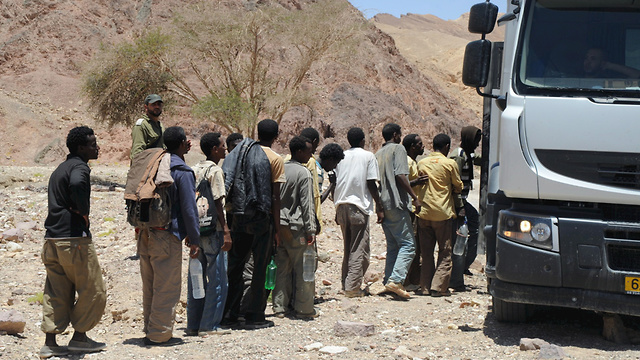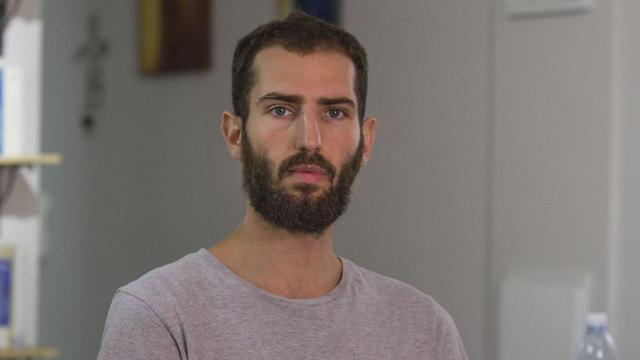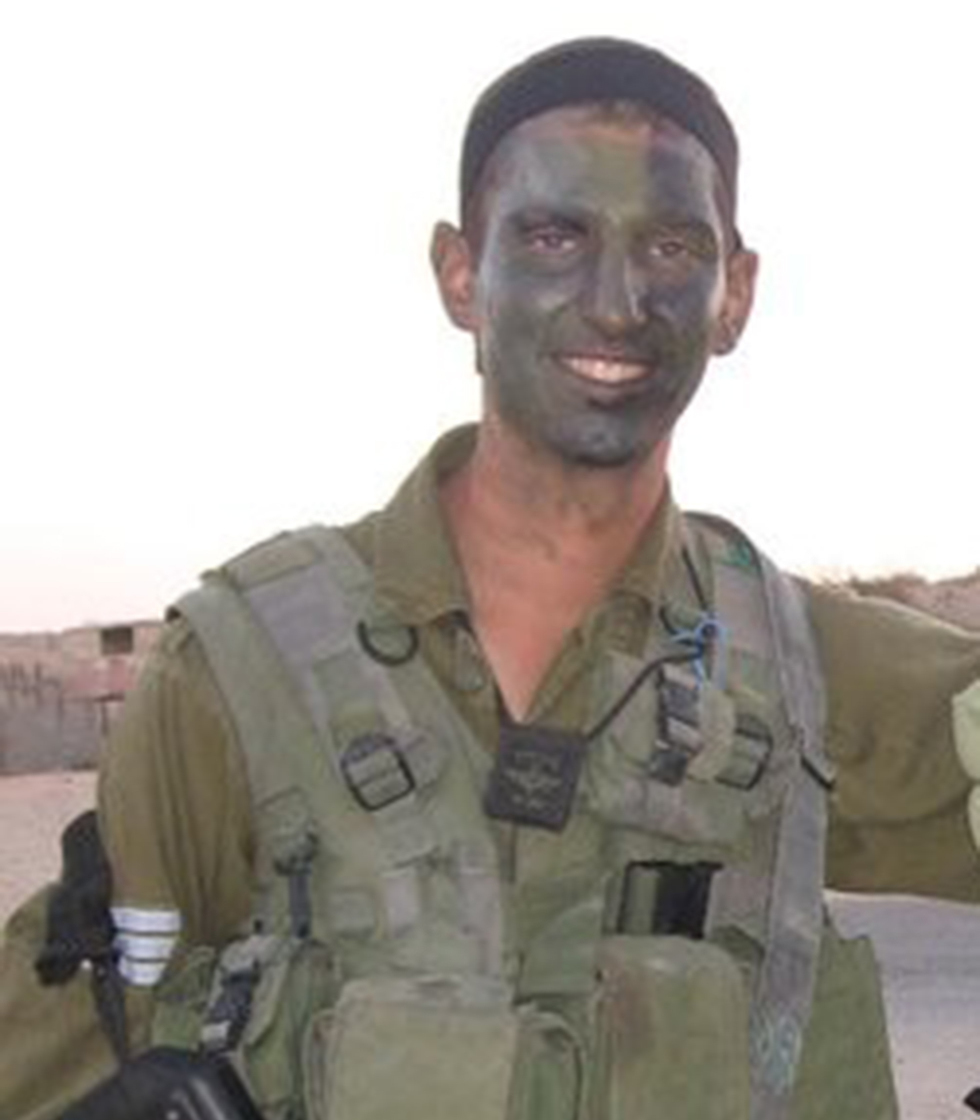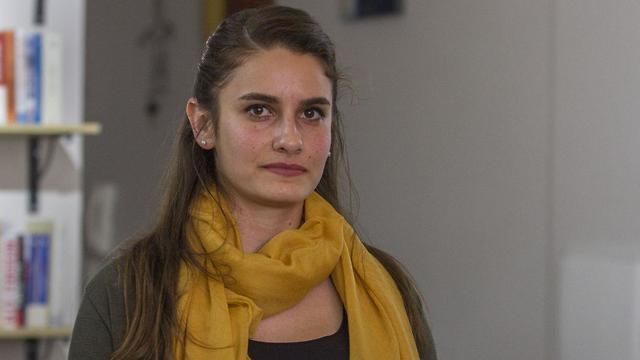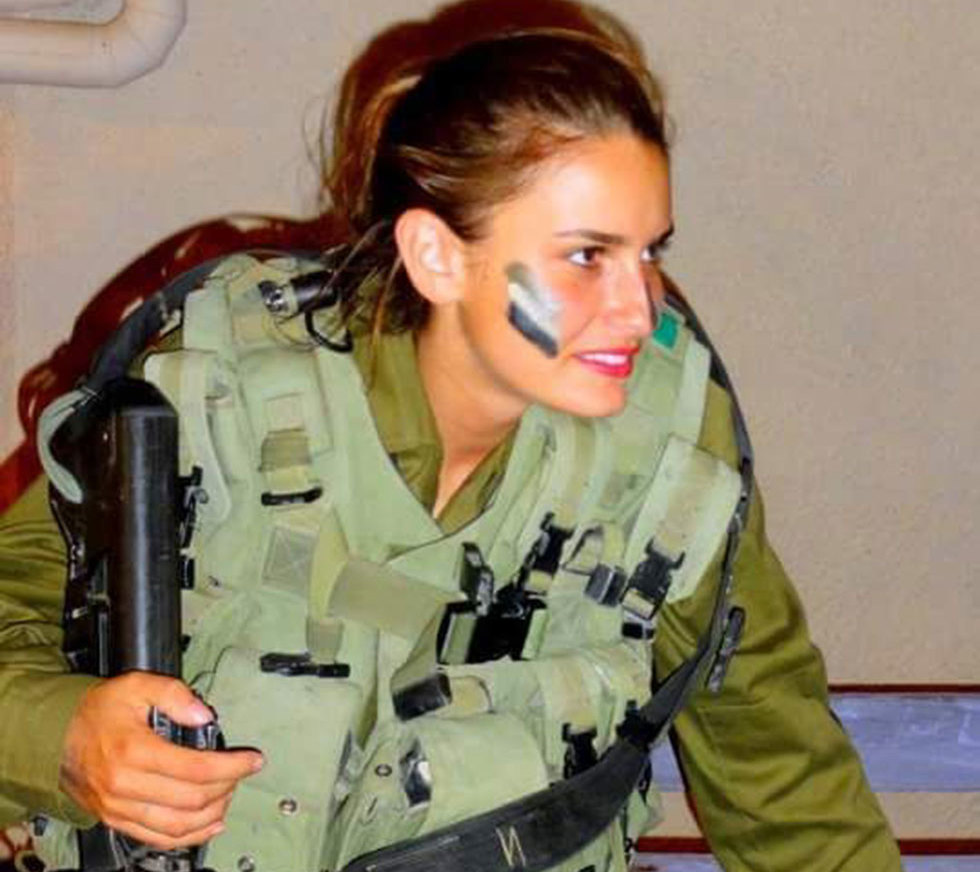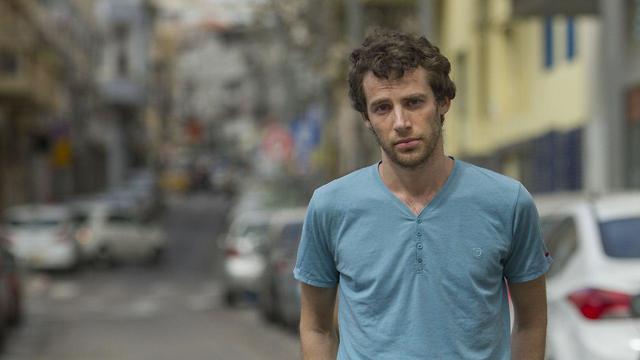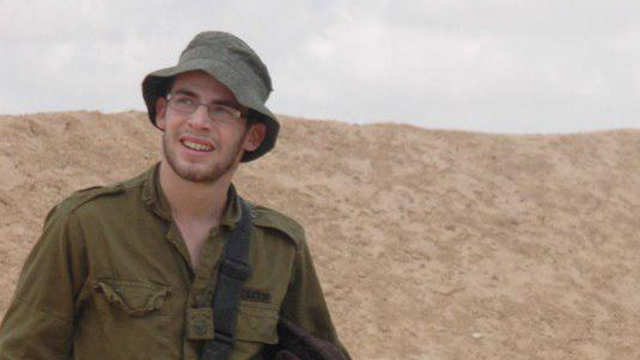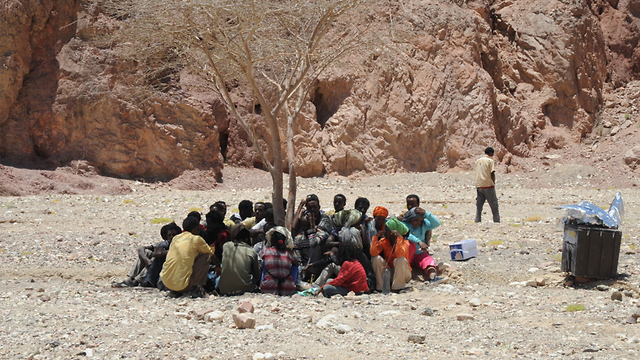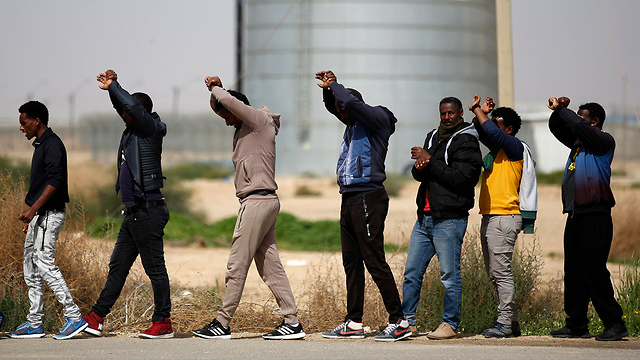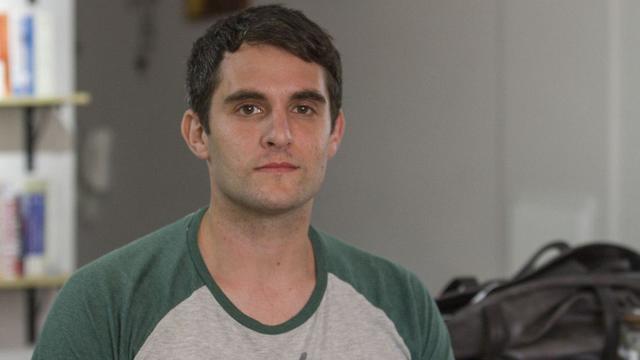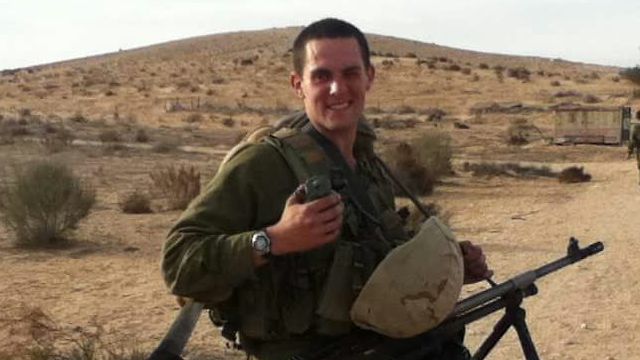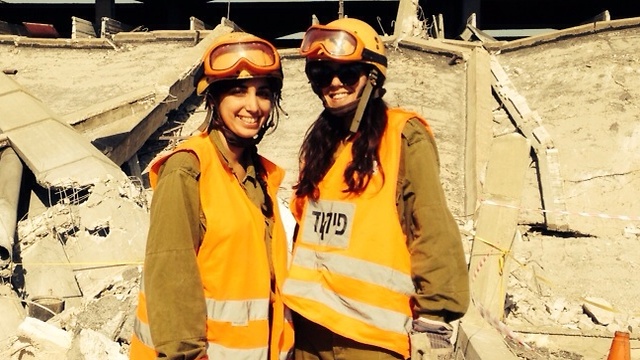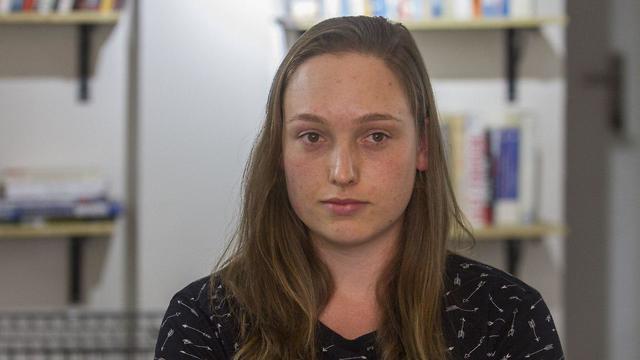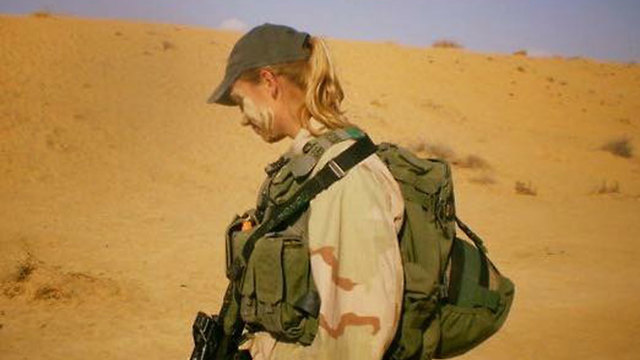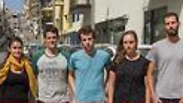

Standing with African migrants, former IDF fighters recall their ‘hell’
After suppressing traumatic memories for years, soldiers who greeted asylum seekers in Israel after their long journey in the deserts of Africa have decided to share their experiences; ‘While I was on guard duty, I saw the Egyptians placing them in a row and executing them,’ Staff Sgt. Nir Leibler recalls; ‘One woman was full of scars on her body from melted plastic and cigarettes,’ First Lt. Eliana Bastiaans says.
They have suppressed it for years, refused to discuss it with others—and barely amongst themselves. They tried to forget. They didn’t want to confront hidden demons. But now, with the upcoming expulsion plan, they feel the time has come to share what only they have seen.
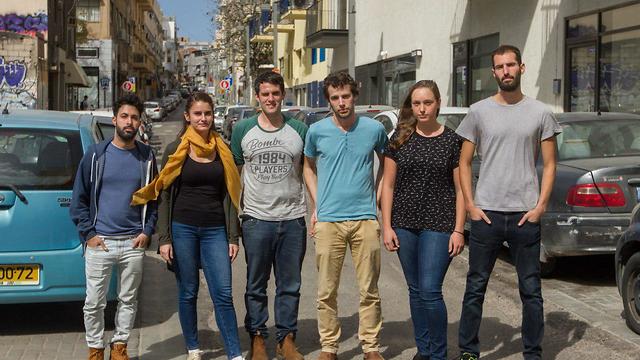
Those were the record years of what was referred to as “the infiltration”—the arrival of African asylum seekers from the Egyptian border—and these fighters were the first people to greet them in Israel after their long journey in the deserts of Africa.
The soldiers encountered slim, injured, sick and starved people. The scars from horrors they had experienced on the way—being kidnapped for ransom, beaten, raped and abused—were evident on their bodies. And those were the lucky one.
There were many others who died on the way. Some died of illnesses and starvation, others were murdered by their captors and others weren’t lucky enough to escape the Egyptian soldiers’ bullets before fleeing into Israel. The Caracal fighters heard and saw them. They heard the asylum seekers’ screams and watched from the observation posts as the Egyptian soldiers sprayed them with bullets, placed them in a line and executed them.
This isn’t political, they stress. It’s a humane, humanitarian issue. Anyone who had been there with us would have felt the same way, they say. It’s our duty to share it all before it begins. Before it’s too late. Before the expulsion. These are their testimonies.
Staff Sgt. David Avitzour: Paramedics were shocked
“We caught them and had to watch over them. I arrived with my paramedics, who cared for each one individually. They saw some shocking stuff as they examined them: People with broken hands, with broken ribs, cuts on their back, burns. They described how in the camps they would drizzle drops of boiling plastic on them while they were on the phone with their families, so they would hear them screaming and pay the ransom.
“The thing that stood out the most was the gravity of their situation. I had never seen people in such a situation before, and it’s something I didn’t see afterwards either. It looked like something I might have seen on National Geographic. Slim, injured, scarred, sick people.
“We discussed it a lot amongst ourselves. After witnessing difficult things, we would share it with each other. One thing I remember in particular is that there were people with all kinds of political opinions and views, but when it came to the people we saw before our eyes, we all found it very important to ease their situation.
“We caught people in August, at a temperature of 40 degrees, after they had been walking around injured, with no water. The first thing everyone did was ask them if they were thirsty, check if there was anything we could give them to eat, try to find some shade for them, bring over a paramedic, bring over a doctor. These were people with completely different political opinions, because when it’s right there in front of you—your general thoughts about the world become irrelevant.
“There’s a wrong image about the situation they were in before they got here. People say, ‘They’re work migrants.’ People say, ‘They had a great life, they just wanted to raise their standard of living.’ That’s not the case. I really saw people who anyone would feel compassion towards and want to help.
“I want people to understand how the asylum seekers got here, because it’s important. And if people want to deport them now, I want them to understand why they are being sent away. Because what they went through on their way here isn’t something I would want anyone to go through again.”
Sgt. Neta Danon: An insane mental breakdown
“We were at the observation post for about three or four days, and we arrived at an area where there were about 100 Sudanese and Eritrean who had approached the border. They were in serious condition. Women, adults of all ages, very thin and injured. They appeared hungry and in need of help. There was a wounded guy and we called a paramedic to attend to him on the ground.
“All the sights were very difficult, both for me and for everyone who was at the observation post with me. When we got back to the base, I felt very bad about what I had seen and experienced. The next morning, I had a temperature of 40 degrees, and so did another guy from the observation post and another one. It turned out we had all fallen ill and had to be flown back home. I was hospitalized for two days. The mental breakdown was insane.
“Even when we spoke about it, it was difficult for us to digest what we had seen. We discussed the surprise in seeing people like me and you who had gone through such difficult things, who seemed neglected and had experienced horrors. They also spoke about the abuse they had gone through, about how they had been raped and badly beaten on their way here.”
Staff Sgt .Matan Eldar: Egyptians slaughtered them
“It’s constantly around you, and the images are difficult. Men, women, children and babies, who have obviously gone through very difficult things. Some are bruised, some are really injured, with cuts.
“One morning, two of our friends who were responsible for the night observations told us they had seen a large group of people, about 40 of them, moving towards the border. At some point, the Egyptian guy at a nearby observation tower woke up and saw them trying to cross the border, and simply started slaughtering them. He just shot them with his machine gun. They dispersed on the Egyptian side, and few climbed the fences and crossed the border, wounded. Some were left lying on the ground, probably dead.
“One morning, two of our friends who were responsible for the night observations told us they had seen a large group of people, about 40 of them, moving towards the border. At some point, the Egyptian guy at a nearby observation tower woke up and saw them trying to cross the border, and simply started slaughtering them. He just shot them with his machine gun. They dispersed on the Egyptian side, and few climbed the fences and crossed the border, wounded. Some were left lying on the ground, probably dead.
“It really affected us, seeing this happening in the most shocking manner. Looking back at that period isn’t easy. Because I saw all these things happening, it’s absolutely clear to me that normal people won’t go through all this in search a job. It’s important for people to know, to learn about what really happened.”
Staff Sgt. Maor Kakoon: One had a ear missing
“When I first arrived at the border, I hated the Sudanese. I couldn’t understand why we were letting them in. I wanted to expel them. Over time, the more I got to know them, I began feeling more empathy towards them. One of the things that made me change my approach was when I kept hearing from Sudanese that they had been kidnapped in Sudan by a tribe called Rashaida, sometimes in the middle of the street. They put them in a van, took them to Sinai, and after torturing them, they tossed them on the border. It’s not that they came here looking for work. Many of them got here against their will.
“They would arrive after not eating for a long time. They suffered from diarrhea and kept vomiting. We had trouble giving them food, because they didn’t know how to deal with it. I remember this group arriving with a mother and a really small baby. She tried to nurse her and couldn’t, after the journey, and the baby wouldn’t stop crying. We had a yogurt and I signaled to the mother that I would like to feed the baby, and I fed her with a spoon.
“Many of them had been abused. I remember someone arriving at the regimental policeman’s post with an ear missing. He had a lot of blood coming out of where his ear used to be. They told us the Bedouins had stubbed out cigarettes on them and a lot of other things.”
Staff Sgt .Nir Leibler: We heard screaming
“At first, we really hated them because we couldn’t sleep because of them. We said that if they had really been refugees or had really come from a difficult place, they would have tried to change the country they came from. We also said they had come for money, but as time went by, we started understanding the place they came from.
"We detained people, and those who could speak English showed me where theirs ears had been cut and the burns from the boiling oil the Bedouins had poured on them. And then I began comparing their problems to my own problem, and I regretted the things I had said earlier. It made me sad hearing other people talk about them too. Everything I had said earlier suddenly seemed so detached.
“Those were difficult times for our squadron. We were kids and we didn’t know how to deal with it, how to digest it. We would see dead people and try to let it go. As they crossed the border, we would hear the Egyptians shooting at the them from the other side. They would play a game of hunting humans—chase them, kill them, rape them.
“Once, while I was on guard duty before sunrise, I saw Egyptians executing a group they had captured at night. They placed them in a row and shot them. There were times we would hear screams on the other side all night long.
“It drives me crazy to hear people say that all the refugees who have come here are thieves, rapists, criminals, because I saw people who went through hell. I remember asking one woman why she wanted to come to Israel—this isn’t their country, after all—and she told me she had heard Israel was a democracy and she just wanted to live.”
Sgt .Shani Kuriel: A little compassion
“Once, there were four of us at the observation post for several days, and one day we heard something happening on the Egyptian border. Using a night vision device, we saw Egyptian soldiers placing a group of refugees in a row and shooting them. It was a traumatic experience.
“When the refugees reached the border, it was clear they were fleeing something terrible. You could tell what they had gone through on their way here, seeing their wounds and torn clothes. Most of them had no shoes on and had walked on the blazing hot desert earth in the summer and on frozen ground in the winter. It was clear to me they hadn’t come here to work. It was clear to me that there was something happening in the place they had come from and that they had escaped to stay alive.
“In one case, a large amount of people arrived at the border and we had to catch them. They were so scared, that when they reached us they began running, and we had to walk several kilometers in the desert to catch all of them. The women’s bodies carried the signs of what they had gone through on the way. It was so terrible I had trouble looking at them.
“I’m not a particularly political or socially active person, but I do know that I witnessed things which a lot of other people haven’t seen, so it’s my duty to spread it and make people understand about the importance of a little compassion here. These people, who may seem threatening, are people who went through difficult things. They wouldn’t come here if they weren’t escaping from something really bad.”
First Lt. Eliana Bastiaans: I suppressed horrors for years
“On my first night at the border, there was an infiltration of foreigners and I was sent to check a woman. It was the first time I was able to put a face to what had been an ‘infiltrators’ headline until then, which is very far from the heart. She slowly started showing me what she had under her clothes. She was full of scars from melted plastic and cigarettes and alcohol shots, and she was extremely slim.
“They would prepare shoes for themselves from plastic bottles cut in half or from cloths, and the scars they had on their bodies were something I had never seen in my life. It was the first time I suddenly realized what we were dealing with here, that these were not just people who came here looking for money. This is not what people who are looking for money look like.
“To stay sane and be able to do your job, you have to put on a mask at some point. You have to try to filter what you see, and I suppressed all these horrors I had seen for years after completing my military service. And now that this whole issue is being rehashed, suddenly everything I suppressed is coming back again and can’t be ignored.
“I was raised in the shadow of a grandfather from Holland who was a Righteous Among the Nations, and it wasn’t discussed my entire life. But there was something very clear in the way I was raised, that if there’s someone you can help—you help them.
“As far as I’m concerned, this whole issue is our duty as human beings. These are people, not a number. These are people, and each one of them has a story and each one of them went through horrible things on their way here.”














